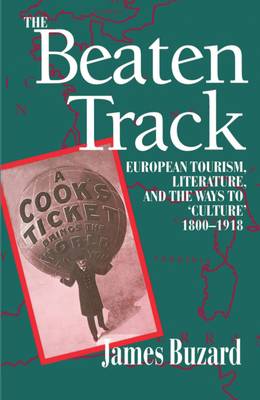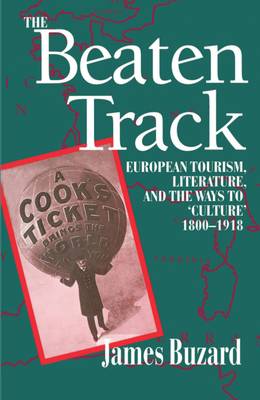
- Afhalen na 1 uur in een winkel met voorraad
- Gratis thuislevering in België vanaf € 30
- Ruim aanbod met 7 miljoen producten
- Afhalen na 1 uur in een winkel met voorraad
- Gratis thuislevering in België vanaf € 30
- Ruim aanbod met 7 miljoen producten
Zoeken
€ 127,45
+ 254 punten
Omschrijving
Taking in a wide variety of nineteenth- and early twentieth-century texts--fiction, poetry, travel writings, guidebooks, periodicals, and business histories--The Beaten Track attempts to grasp what modern representations of "culture" owe to the long process of confrontation with a democratizing and institutionalizing European tourism. Buzard argues that an exaggerated perception, first emerging after the Napoleonic Wars, of the Continental tour's sudden radical openness to virtually "every" level of society took firm hold on the British and American travelling imagination--a hold strengthened, over the years, by the visible labors of travel popularizers such as Thomas Cook and professional guidebook publishers such as Murray and Baedeker. One consequence--traceable in sources ranging from Punch and Blackwood's Magazine to writings by Wordsworth, Dickens, Frances Trollope, Ruskin, Anna Jameson, Henry James, Forster, and others--was a new set of formulations of what constitutes "authentic" culture (in a given place) and "genuine" cultural experience (in a given person). Accounts of the modern European tour evolved a symbolic economy of practices aimed at distinguishing the true "Traveller" from the "Vulgar Tourist"--mainly on the basis of imputed personal merits, not explicit social privileges. Its various forms of "anti-tourism" helped to make the European tour an exemplary cultural practice of modern liberal democracies, appearing at once popularly accessible and exclusive.
Specificaties
Betrokkenen
- Auteur(s):
- Uitgeverij:
Inhoud
- Aantal bladzijden:
- 370
- Taal:
- Engels
- Reeks:
Eigenschappen
- Productcode (EAN):
- 9780198122760
- Verschijningsdatum:
- 24/06/1993
- Uitvoering:
- Paperback
- Formaat:
- Trade paperback (VS)
- Afmetingen:
- 166 mm x 222 mm
- Gewicht:
- 612 g

Alleen bij Standaard Boekhandel
+ 254 punten op je klantenkaart van Standaard Boekhandel
Beoordelingen
We publiceren alleen reviews die voldoen aan de voorwaarden voor reviews. Bekijk onze voorwaarden voor reviews.








